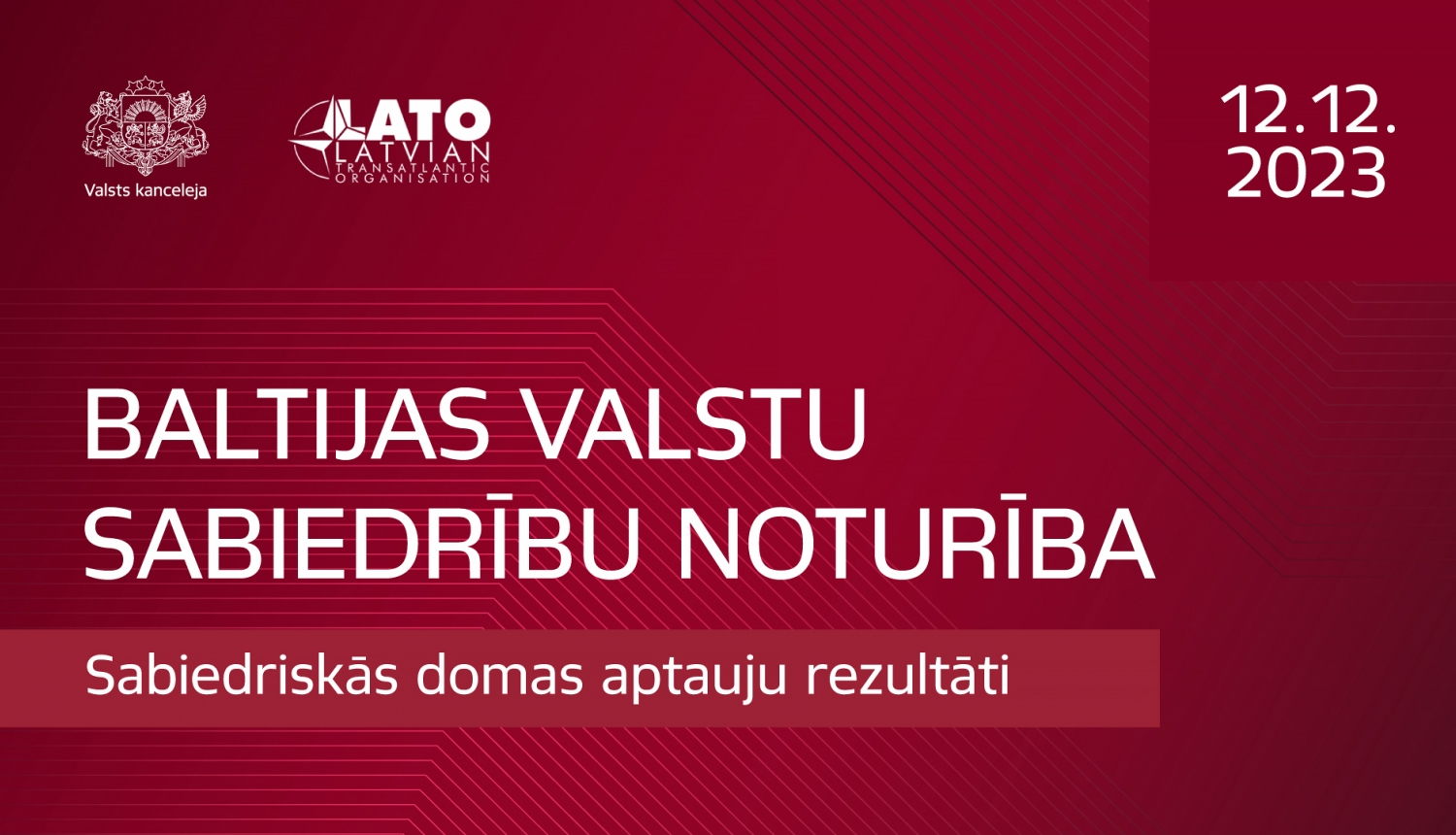The presentation of the results of public opinion polls and discussion on the resilience of the population, society and the country in the context of Russia’s brutal war in Ukraine will be held on Tuesday 12 December, at 10:00 a.m., in Hotel Bergs Suites hall. During the discussion, experts will address the policies required to strengthen the resilience of society and the country, both in crisis situations and towards achieving Latvia’s security and development goals. The event is organised by the State Chancellery in cooperation with the Latvian Transatlantic Organisation (LATO).
“Russia’s invasion of Ukraine has radically changed the security situation in Europe, forcing everyone to assess preparedness for crisis and create favourable conditions for successful crisis management in the future. The resilience of society and its further development against future crisis situations are at the heart of strengthening both, individual and national security. This is particularly essential to build the psychological resilience of society to threats in the information space. In view of the fact that we are geographically close, in these studies we have implemented the goal of measuring and evaluating various aspects of resilience in the wider context – the Baltic States,” emphasises Dr. Rihards Bambals, Head of Strategic Communication Coordination Department of the State Chancellery.
Survey results highlight individual, community and national resilience measurements, as well as indicators such as anxiety symptoms, threat perception, overall well-being, level of hope and optimism, readiness to help others and other aspects. Survey results will be presented by the experts from three countries: Ms Sigita Struberga, Secretary General of LATO, Dmitri Teperik, Senior Policy Expert for Public Resilience, Disinformation, Crisis Communication and Civil Security, University of Tel Aviv, and Dalia Bankauskaite, Senior Expert, European Policy Analysis Centre.
“Public opinion polls highlight a number of important trends with regard to interpersonal trust, trust in the public administration system, common alert levels and other important indicators in the context of the war in Ukraine. The analysis of statistical data reveals not only quantifiable trends, but also collective resilience of societies of the Baltic countries, as well as weak points in the resilience development process. The application of a common methodology in all three Baltic States ensures systematic research, offering a concrete and scientifically sound view of long-term societal dynamics in the Baltic region,” emphasizes Sigita Struberga.
A common research methodology for surveys was developed by the Multinational Research Centre for Endurance and Well-being at the Public Health School of the Sacler Medical Faculty of Tel Aviv University. It uses various research tools, such as certain scales with predictive validity in the context of crisis and disasters: individual resilience scale, community resilience scale, society's resilience scale, anxiety symptoms, feeling of threat, perceptible threats, attitude towards war refugees, demographic indicators and other tools. They make it possible to identify past variables affecting resilience, to propose measures to strengthen resilience-supporting factors and to mitigate depressive factors, as well as provide evidence-based conclusions to decision-makers and policy makers.
The expert discussion will focus on analysing the survey results and conclusions, as well as discussing and evaluating the measures and policies required to strengthen resilience of an individual, community and society as a whole. The discussion led by journalist Ansis Bogustovs will be attended by Ingemārs Vekteris, Executive Director of the Latvian Broadcasting Organisation Association, Elīna Egle, Chairperson of the Council of the Latvian Business Union, Ivars Nakurts, Deputy Head of the State Fire and Rescue Service, Renārs Kairis, Senior Expert of the Study Development and Management Improvement Programme of the University of Latvia, Rihards Bambals, Head of Strategic Communications Coordination Department of the State Chancellery



